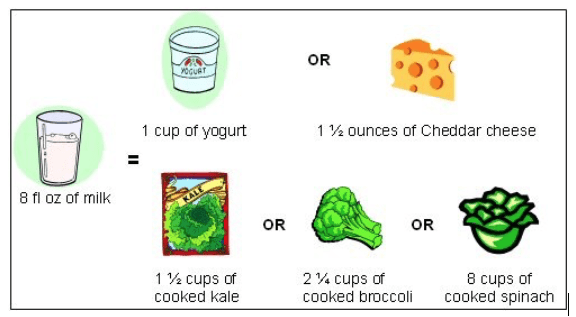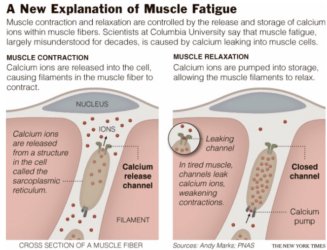
6 July 2022
Milk is so important in relation to ensuring you get calcium in your diet, is it a wonder they have moved to pasteurise and sterilise it and then offer it up as a healthy choice?
Getting a bit more calcium in your diet could help you live longer.
Researchers found that males who consumed the most calcium in food were 25 percent less likely to die over the next decade. None of the males took calcium supplements.
The findings are in line with previous research linking higher calcium intake with lower mortality in both males and females.
Males in the top third based on their calcium intake were getting nearly 2,000 milligrams a day, on average. The Recommended Dietary Allowance (RDA) for calcium intake is 1,000 to 1,200 milligrams.
Calcium could influence mortality risk in many ways, for example by reducing blood pressure, cholesterol, or blood sugar levels.
Sources:
Reuters March 12, 2010
American Journal of Epidemiology February 19, 2010
Calcium is said to be the solution for building strong bones, but although the vast majority of this mineral is stored in your bones and teeth, it’s important for other bodily processes as well.
Calcium plays a role in muscle contraction, blood clotting and cell membrane function. It also helps regulate the activity of enzymes, and if your body does not have enough available calcium, it can wreak havoc on your health and actually shorten your lifespan.
According to the latest research, males who ate the most calcium-rich diets — taking in nearly 2,000 milligrams of calcium a day — had a 25 percent lower risk of dying from all causes, and a 23 percent lower risk of dying from heart disease, compared to males who ate about 1,000 milligrams a day.
According to researchers calcium’s benefit likely came from several areas, including cholesterol or blood sugar levels.
Calcium is so important to your body’s ability to function that if you don’t have enough of it in your blood from dietary sources, your body will begin to use stores of the mineral from your bones.
This is why it’s so important to include calcium-rich foods in your diet.
What are the Best Sources of Calcium?
The best food source of calcium out there is raw milk (NOT conventional, pasteurised milk) and other raw dairy products. One of the worst side effects of pasteurisation is that it renders much of the calcium contained in raw milk insoluble, so it is best to drink your milk raw if you want to absorb its calcium.
Dark green, leafy vegetables, including spinach, turnip greens, mustard greens and collard greens, are another great source of calcium, as are sesame seeds.
Calcium from dietary sources is usually more completely absorbed than calcium from supplements, so eating more of these foods is a simple way to make sure your calcium levels stay at a healthy level. When its comes to supplements it is important you understand that most are laced with Silicone Dioxide which is a polymer, used as a thickener, also called E551. This polymer breaks down to quartz at its base structure and has been seen as the cause of morgellons disease.
Vitamin D is also important for calcium absorption, so along with your raw milk and vegetables, make sure that your vitamin D levels are optimised as well.
More is Not Better When it Comes to Calcium
Taking too much calcium, especially in supplement form, will not do your body any favours. In fact, taking more than 3,000 milligrams per day has been linked to elevated blood calcium levels, or hypercalcemia. This condition can cause calcium to accumulate outside of your bone cells, leading to soft tissue calcification.
Dr. Robert Thompson M.D. wrote an entire book, The Calcium Lie, addressing the important issue of over-supplementing with calcium. Although he’d been able to resolve many illnesses with supplements and herbs and other less toxic alternatives to drugs, he came to realise that similar to the pharmaceutical industry, the nutrition industry had its own flaws.
He concluded that enormous amounts of money were being wasted on supplements that had little or no health benefit, and in some cases could actually worsen your health.
One of the tenets of his book is that bone is composed of at least a dozen minerals, and if you focus exclusively on calcium supplementation you are likely going to worsen your bone density, and will actually increase your risk of osteoporosis!
Dr. Thompson believes that the over-consumption of calcium in the goal of preventing osteoporosis creates other mineral deficiencies and imbalances that will also increase your risk of heart disease, kidney stones, gallstones, osteoarthritis, hypothyroidism, obesity and type 2 diabetes.
Dr. Thompson proposes that one of the best practical alternatives is the use of naturally occurring ionic supplements, as ionic minerals are the most plentiful form of minerals found on earth. He believes that almost everyone needs trace minerals, not just calcium, because you simply cannot get all the nutrients you need through food grown in mineral-depleted soils.
Dr. Thompson believes that unprocessed salts, such as Himalayan salt, are one of the best sources of these ionic trace minerals, which are responsible for catalysing many important functions in your body.
This will give you access to a variety of whole-food sources of calcium that will keep you healthy and strong.
If it also important to recognise that although this study did not address it, magnesium may be even more important than calcium. If you do take calcium supplements you will want to make sure it is balanced with enough high-quality magnesium.
If you find yourself short on base minerals, perhaps due to sweating a lot, then consider ingesting Chicken livers.
Further Study
Health
